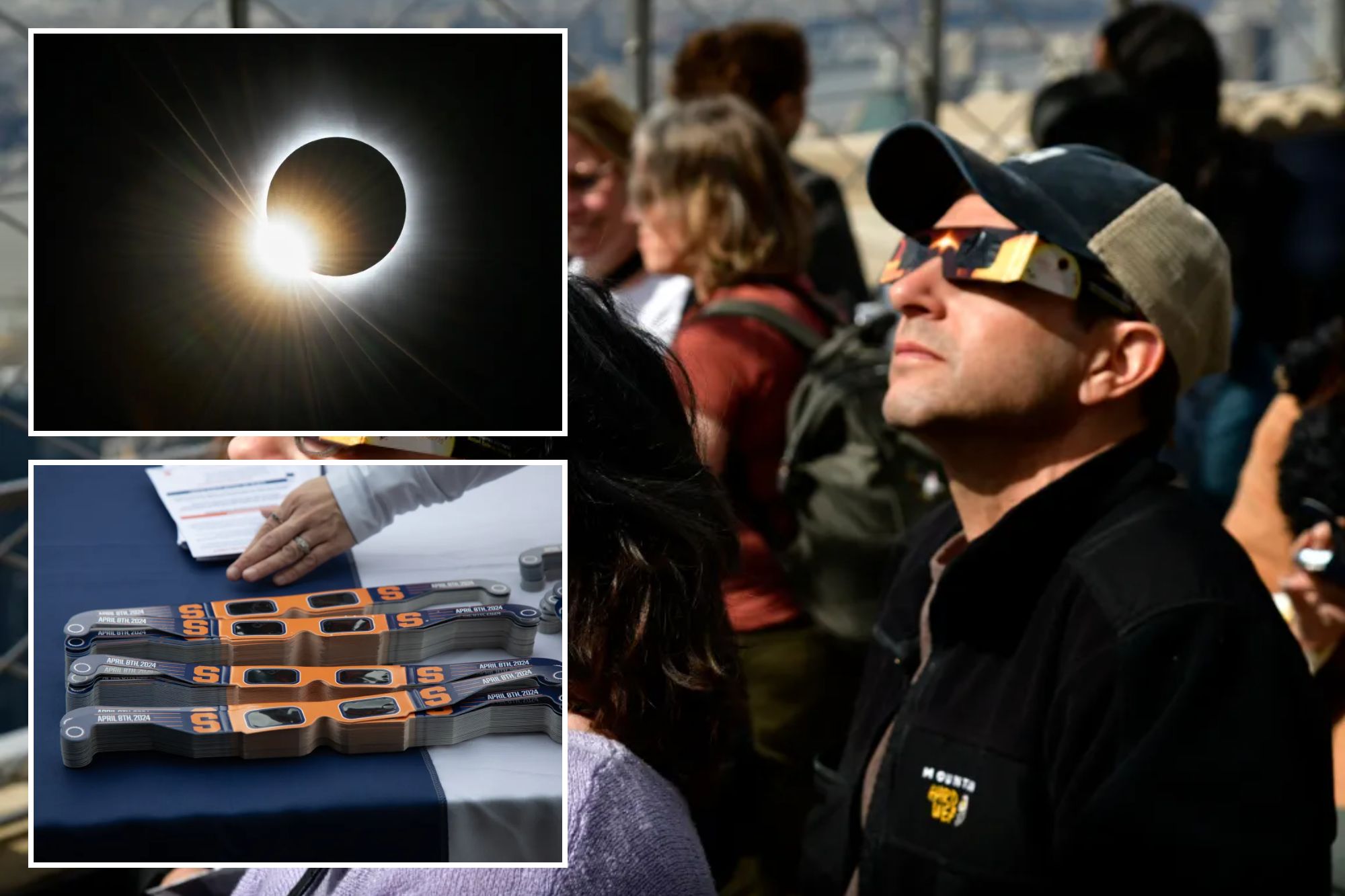
Bonnie Tyler was wrong — you don’t need them now tonight.
Now that daytime stargazers across the nation’s heartland have had their fill of the last total solar eclipse in North America for the next 20 years, it’s time to ditch those safety glasses properly.
“After you’ve used your glasses, the best recommendation is to donate them,” New York City’s Office of Emergency Management posted on X, adding that simple recycling also suffices.
“If you choose to recycle, make sure the protective film is punched out,” the agency recommends.
One organization collecting donations is Astronomers Without Borders. It has partnered with Warby Parker, making the eyeglass store a designated dropoff zone for eclipse shades throughout April.
Millions of glasses were donated after the 2017 eclipse, Astronomers Without Borders communications manager Andrew Fazekas told The Hill.
“There are a lot of underserved communities that just don’t have access to this safe eyewear. So we’ve been providing hundreds of thousands of glasses across the world, for places like Chile, Argentina, Ethiopia, Sri Lanka, the Philippines,” Fazekas said.
Through the end of July, Eclipse Glasses USA will be taking donations that will go to children in Latin American nations for an annular October eclipse in the southern hemisphere, NBC New York reported.
Another viable solution is to just hang onto them for the next main solar eclipse event, on Aug. 23, 2044, as undamaged eclipse glasses do not expire, per the American Academy of Ophthalmology.
A total solar eclipse will also occur on Aug. 12, 2045.














